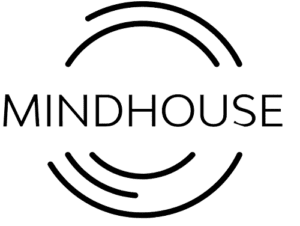
Mental Wellness Finally Get Spotlight in the Wellness Industry
Over the past several decades, we have become more and more aware of how important it is to lead a healthy lifestyle – and so has the wellness industry. Eating a balanced diet, getting plenty of exercise, and avoiding harmful things like smoking aren’t just generic suggestions anymore.
We have also started to search out alternative products and services that help us meet our daily needs. But we also want ways that are not only healthy but also sustainable. In fact, the Global Wellness Institute (GWI) has been tracking the growth of the wellness industry since 2002. And their reports show a staggering spike in growth. The ‘global wellness economy’ has grown to roughly $4.5 Trillion by 2018. Yes, that’s Trillion with a “T”.
But more importantly, one long-neglected sector is set up particularly well for breakout growth in the near future: Mental Wellness.
Before we explore what Mental Wellness really means, let’s step back a moment. First, we need to understand the overall Wellness Industry and where Mental Wellness currently fits in.
UNDERSTANDING THE WELLNESS INDUSTRY
The GWI defines the ‘wellness economy’ as any industry that helps consumers incorporate wellness activities into their daily lives. This is further divided into 11 sectors:

- Physical Activity
- Wellness Real Estate
- Workplace Wellness
- Wellness Tourism
- the Spa Economy
- Thermal/Mineral Springs
- Healthy Eating/Nutrition/Weight Loss,
- Personal Care/Beauty
- Preventative Medicine
- Traditional/Complimentary Medicine
- And the newly added sector: Mental Wellness.
The overall wellness economy has been growing by roughly 6.4% since 2015. This is nearly twice as fast as the global economy as a whole. Also, there’s already a robust backing of wellness industry research. So, it should be no surprise that the wellness sector is clearly going to burst with growth.
MENTAL HEALTH & ITS BREAKOUT SUCCESS
One of the GWI’s recent reports included Mental Wellness as a unique category for the first time. Mental wellness had already reached more than $120 Billion in 2019.
“Stress, loneliness and burnout were exploding pre-pandemic, and a stronger focus on mental wellness has been a cultural mega-shift these last few years: People awakening to the importance of integrative solutions including meditation, sleep and brain health. But mental wellness as a concept, and what constitutes it as an industry, has remained incredibly fuzzy,” Clarifying what it is, and delineating its business segments, is overdue. And while most mental wellness strategies are free –like spending time in nature or with friends – people increasingly seek non-clinical help in coping with everyday mental challenges, and that’s where the mental wellness industry comes in.”Ophelia Yeung, GWI senior research fellow
So far, the blanket definition for mental health in the wellness industry is “An internal resource that helps us think, feel, connect, and function. It is an active process that helps us to build resilience, grow, and flourish.”
But what do the companies leading this brain-health revolution within the wellness industry look like? Let’s take a look at some of the players in mental wellness. Also, how they are shaping the future of wellness:
Mindhouse

Mindhouse is a unique company that combines the benefits of yoga, meditation, and nutrition to help its users with issues related to everyday wellness, chronic ailments, mental health, and women’s health.
What we love about Mindhouse:
- They have a holistic view of wellness that covers mental, physical, and emotional issues.
- Their digital platform allows users to access their services from anywhere.
- Their specific focus on providing women’s wellness services.
Equip

Equip is working to help individuals overcome eating disorders by making it easier for people to connect with therapists, find family and peer mentors, and develop the skills they need to live a healthy and happy life.
What we love about Equip:
- Equip not only focuses on the immediate needs of overcoming eating disorders, but also works to help individuals build healthy habits for long-term success.
- They combine professional medical support, family and group counseling classes, dietary and nutritional guidance, skill-building, and more into a holistic approach to recovery.
Headspace

Headspace is on a mission to help people stress less, sleep better, and live happier lives by teaching meditation and mindfulness skills in quick, easy-to-follow on-demand classes.
What we love about Headspace:
- The company has grown and transformed from hosting in-person events into a truly digital platform for wellness.
Unmind

Unmind is helping to make the workplace a better place through its mental health platform for businesses. They help employees proactively measure, understand, and improve their mental wellbeing.
What we love about Unmind:
- The Unmind platform is designed specifically to help build healthy workplaces by giving employees the tools they need to improve their mental wellbeing.
- The platform promotes a healthy culture by allowing employees to send ‘expressions of gratitude’ to other users, praising them for being trustworthy, kind, inspirational, and more.
Togetherall

Togetherall offers a “safe, online community to share feelings anonymously and get support to improve mental health and wellbeing.” They have built a platform where people can support each other, within a community that is safely monitored by licensed and registered mental health practitioners.
What we love about Togetherall:
- Their community is making it easier for people to get over the taboo of talking about mental health.
- Using licensed mental health practitioners to moderate the communications forums helps to ensure people encounter quality content and ensures conversations stay on topic and avoid harmful misinformation.
Though mental health and wellbeing is a relatively new sub-section within the global wellness economy, it has grown to become a core aspect of any holistic approach to wellness. This growing demand from consumers is pushing unprecedented investment and innovation in the products and services available.
While any mental health journey should include input from certified mental health professionals, the increasing availability of scientifically-backed mental wellness tools can go a long way in improving our mental health and making peoples’ lives better in the process.
If you would like to share a story of your mental wellness journey or tell us what your favorite mental wellness tools are, we’d love to hear from you. Connect with us on Facebook, Twitter, and Instagram now!














